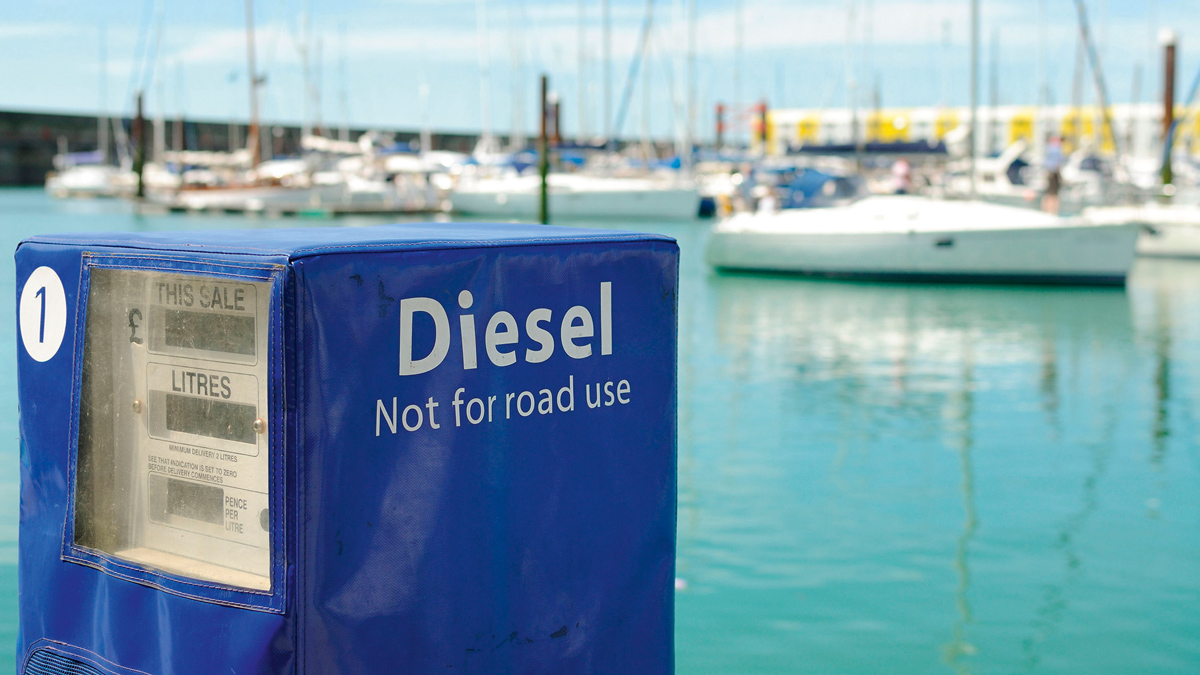Colin Staple's unreliable outboard is spoiling his sailing. Stu Davies suggests how to improve its performance
With over 70 years of small outboard experience from the reliable Seagull to modern leading brands, I’d like to know others’ views on modern small unreliable outboards; problems seem to be allegedly connected to present day petrol containing blends of ethanol.
I cannot understand why they don’t seem to be as reliable as lawn mower engines which are usually much less looked after.
Our 2.5hp used for the tender is meticulously flushed out with fresh water after use and the carburettor is run dry.

Colin Staples laments that modern engines don’t seem to be as reliable as his old Seagull outboard. Credit: Paul Andreassen/Alamy
The 5hp is attached to the transom and is run dry after use as recommended by our supplier.
The result is stuck floats and jammed needles; if not drained, the jets get blocked.
We’ve tried long-life petrol without ethanol at £26 for 5lt but this still gives problems.
The latest advice I have received is not to drain the engine if using it next week, but do drain it if you’ll not be using it for a longer period.
Occasionally, after the engine has started and been running okay, it won’t restart.
This unreliable outboard is spoiling our sailing; tacking up the Hamble under sail and picking up a mooring was okay 70 years ago but with the amount of activity today it is fraught.
Colin Staples
Stu Davies replies:
There are several issues here. Blocked jets, and sticking valves. There is also a reference to ‘running dry’.
I’ll start by covering 2-stroke engines first.
Let’s go through the ethanol issues. Ethanol attracts water, water is then present in the fuel (think whisky! It is a mixture of alcohol and water with some flavours in it).
If the engine is left over winter with some liquid in the float bowl, then water will be left in the bottom of the bowl to react with the metals in the carburettor.
It’s this water and its by-products that hang around in the float bowl that can lead to the blocking of orifices.
I’ve seen a float bowl almost full of aluminium oxide caused by this!
To a certain degree the ethanol petrol in my small garden 2-stroke engine ‘melts the fuel lines and components.
Issues with these suggest that maybe a plastic residue is causing problems there.
Running the engine dry doesn’t completely empty the float bowl and any water droplets in that float bowl full of fuel will be left there; water is heavier than fuel so all the water in it will be left there if it is just ‘run dry’.
Continues below…
How to service a 2-stroke outboard engine
After a long winter indoors many 2-stroke outboards are reluctant to start. A simple service should make yours more reliable.…
Is there a better diesel fuel?
Would gas to liquid (GTL) fuel work better than diesel fuel? PBO's engine whisperer, Stu Davies ponders the question
Why isn’t fuel pre-treated to prevent diesel bug? Ask the experts
Glynn Jones writes: “If I have understood the issue correctly, the addition by the oil industry of biodiesel to our…
What’s the best boat fuel? Is it worth paying for premium? Ask the experts
PBO reader Roy Gwilliam asks: “I have a Yanmar 3YM20 engine in my Dehler 32, built in 2010. I generally…
With sticking valves, again, just ‘running dry’ allows some mix to remain in the float bowl; the fuel evaporates leaving a mix of oil and water behind.
The oil becomes sticky. The sticky oil can cause float shut off needles to stick.
Using Aspen Alkylate petrol is supposed to negate the ethanol effects so that should sort it.
So I am puzzled as to why you are still having issues when using it.
As for 4-stroke engines, all the above still applies regarding water in the fuel.
The bigger issue with 4-strokes is that the jets and orifices in the carburettor are smaller and more prone to blocking.
So if you’re going to empty the carburettors, empty them properly – open that drain screw in the bottom of the float chamber.
My old 2.2hp Mercury 2-stroke outboard sits on the pushpit with a fitted cover. It stays there for months on end.
During the Covid-19 pandemic, I drained it properly because we were away for quite a while.
The old fuel was left in the tank and it started quite easily after six months.
This season I didn’t bother, I just left it for a month; it fired up quickly but then died.
I stripped the carburettor and found a hair in the float valve – the cause of it sticking closed.
We are in Portugal, though, and the warmer temperatures may be making my fuel react differently than fuel used in the UK.
So, drain fuel properly if leaving an engine for a long time. If you have a 4-stroke outboard then use fresh fuel all the time too.
Unfortunately, even in our simple engines, the fuel system is now very much a regular maintenance item.
Electric outboard anyone?
Enjoy reading Why is my outboard so unreliable?

A subscription to Practical Boat Owner magazine costs around 40% less than the cover price.
Print and digital editions are available through Magazines Direct – where you can also find the latest deals.
PBO is packed with information to help you get the most from boat ownership – whether sail or power.
-
-
-
- Take your DIY skills to the next level with trusted advice on boat maintenance and repairs
- Impartial in-depth gear reviews
- Practical cruising tips for making the most of your time afloat
-
-
Follow us on Facebook, Instagram, TikTok and Twitter








